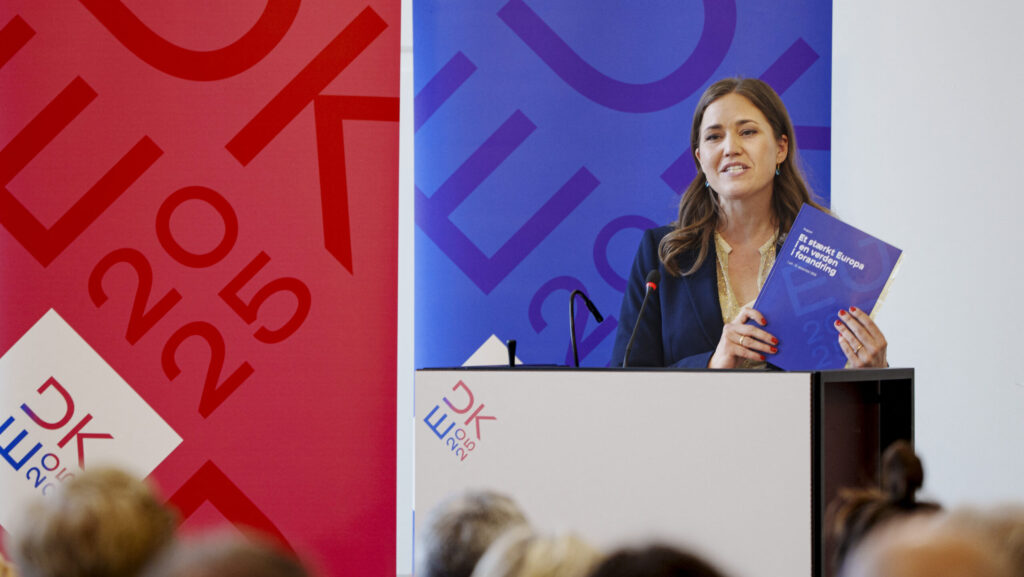The new opera of world-famous Hungarian composer Péter Eötvös, the single most performed contemporary opera composer worldwide, has involuntarily caused controversy.
Eötvös was commissioned by the Hungarian State Opera House to create the work, the first in Eötvös’ oeuvre to be performed in Hungarian. The grotesque opera, a tragicomedy (commedia tragica) in one act, titled Valuska is based on László Krasznahorkai’s 1989 novel The Melancholy of Resistance and its the film version, Béla Tarr’s Werckmeister Harmonies. The premiere is scheduled for December, just before Peter Eötvös’s 80th birthday, in Budapest.
Valuska (spelt as Valuschka) will also be staged in Germany at the Regensburg Theatre (Theater Regensburg) in January 2024. The theatre introduced the piece as follows on its website: ‘Valuschka is a bitter parable and a complex reflection on the nature of power and superior power: one inevitably feels its similarity to the current political situation in Hungary, where Prime Minister Viktor Orbán’s power is growing, the press and cultural institutions are increasingly under control, and the constitution is being altered at will.’
The director of the Hungarian State Opera House, Szilveszter Ókovács published a scathing response addressed to Sebastian Ritschel, the director of Theater Regensburg, on pro-government Hungarian news website Origo:
‘1. The new opera was ordered, negotiated, and paid for by the Hungarian State Opera House, the largest performing arts institution in Hungary, which has just celebrated its 140th season.
2. The world premiere of the new opera cannot be held at your institution, because, according to the contract, it will take place in Budapest on 2 December 2023. Therefore, please refrain from promoting it otherwise.
3. Péter Eötvös, the composer, received the highest Hungarian artistic recognition, the Kossuth Prize, as well as the highest Hungarian state honour, the Order of Saint Stephen, in 2015,
from the hands of the politician the libretto, in your reading, is a bitter parable of.
4. Péter Eötvös, the composer, will certainly defend himself if he deems it important, but I would like to point out that during the creative process, which resulted in the opera Valuska based on László Krasznahorkai nd Béla Tarr’s works, he never made any reference to it being a parable against sovereign Hungary, the homeland of the authors. Of course, art is free, as is thought (“Die Gedanken ist frei!”, as Gustav Mahler wrote in one of his songs, a phrase he formulated during his time as chief music director of the Budapest Opera), but it is certainly unbecoming to handle works of living authors in ways that they would certainly not wish for. At our institution, this is certainly not customary; for example, Péter Eötvös specifically composed this work in collaboration with Hungarian director Bence Varga.’
Ókovács added: ‘Furthermore, let me gently point out that the modification of constitutions in reference to that of Hungary, adopted by more than two-thirds of the parliament, is rather embarrassing to be cited in a theatre that stands in Bismarck Square in Regensburg, a square named after a German personality who undoubtedly offers many a genuinely bitter joke for the Germans thanks to his oeuvre which, from the point of view of our present-day understating of democracy and the perspective of other nations, is definitely problematic.
Finally, I promise that even if a cheap analogy might present itself, out of respect for Germany and our belief that daily political affairs do not belong in the realm of art, we will never portray your chancellor as a pirate in a ballet performance, and we will not identify Beethoven’s Fidelio’s villainous governor with him just because it would be easier to conceal our lack of information and interest by pushing ready-made, false narratives.’
(N.B. The controversial introduction has since been modified, and there are no longer allusions to Orbán or the political system in Hungary in it.)
Related articles:








